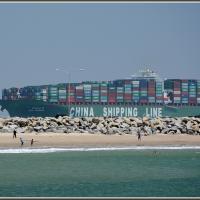China's role in Asia's Free Trade Agreements

A new wave of regional trade negotiations have sprung up in the Asia-Pacific region. China faces challenges and opportunities simultaneously. On the one hand, if China is excluded from major regional trade agreements, such as Trans-Pacific Partnership, it may hurt China’s future growth. On the other hand, China can utilise the opportunities of regional trade negotiations to shape the new rules of international trade from the very early stage. Regional trade negotiations are also important for China because it needs further opening up to facilitate the domestic economic reform.
Updated: 20 April 2024/Responsible Officer: Crawford Engagement/Page Contact: Editorial office










